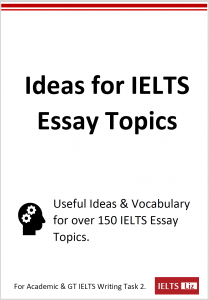This lesson focuses on the topic of Media which is a common IELTS reading topic. The question type is sentence completion which basically means you fill in the gaps. This is the most common type of question in IELTS reading.
Whether the information in news is trustworthy or not is a common question and topic in IELTS Writing and IELTS Speaking Part 3. This reading lesson focuses on a passage about trusting news. You can use ideas and vocabulary from this reading passage in your Writing or Speaking Tests. However, let’s see how good your reading and paraphrasing skills are with sentence completion questions. Read the passage and then answer the questions below.
Passage: News We Can Trust
Climate change, worsening inequality between rich and poor, and social unrest in many parts of the world have left many people confused and distrustful of all those in a position of power. In this time of global upheavals and uncertainty, if we want to understand what is going on around us, an ability to distinguish between unreliable and trustworthy news sources is absolutely essential.
A recent study has shown that social media platforms have become by far the prevailing way for people to find news on the Internet. There are several issues associated with this. Firstly, social media users are continually bombarded with information, a lot of which may be from credible sources, but a lot actually coming from unverified or dubious ones. The conflicting messages that often emerge from this jumble of news stories only add to the feeling of confusion and mistrust. As a result, people usually end up choosing to believe the version of the facts that is most in tune with their own views. They then go on to share their favourite stories with their friends, most of whom will almost inevitably “like” them.
This in turn brings about the issue of the dissemination of misinformation or, at worst, fake news. To counteract these problems, what is needed more than ever before is independent, fact-based investigative journalism. Investigative reporters do not write stories to get a lot of clicks or likes. They work hard to unveil matters that people in a position of power try to conceal, or to reveal the links between events that seemed unconnected. They tirelessly search for evidence and aim to analyse and present all the relevant facts to the public with clarity and precision. In short, their work is to help us make sense of our world and our place in it.
Source: IELTS Liz Own. Some of the content of this passage was inspired by the following sources: https://en.unesco.org/investigative-journalism and http://wayback.archiveit.org/10611/20160906193350/ and http://unesdoc.unesco.org/images/0019/001930/193078e.pdf
Questions 1 – 7: Complete the sentences using no more than three words from the passage above.
- Trustworthy news is more important than ever because the world is going through a period of _ _ _ _ _ _ _ _ _ _ and unpredictability.
- _ _ _ _ _ _ _ _ _ _ are the main source of news for most web users.
- People often tend to choose the version that most agrees with _ _ _ _ _ _ _ _ _ _ when they are offered differing accounts of an event.
- Sharing unverified news stories with social media friends contributes to
the _ _ _ _ _ _ _ _ _ _ of false information. - Objective investigative journalism can _ _ _ _ _ _ _ _ _ _ the spread of fake news.
- Investigative reporters try to bring to light the relationship between
apparently _ _ _ _ _ _ _ _ _ _ events. - Through their work, investigative reporters try to make it easier for us
to _ _ _ _ _ _ _ _ _ _ the world in which we live.
Answers
The answers to this lesson are now available:
CLICK HERE: ANSWERS TO THIS LESSON
All the best
Liz
………………………
Free Subscribe to get New Lessons by Email





